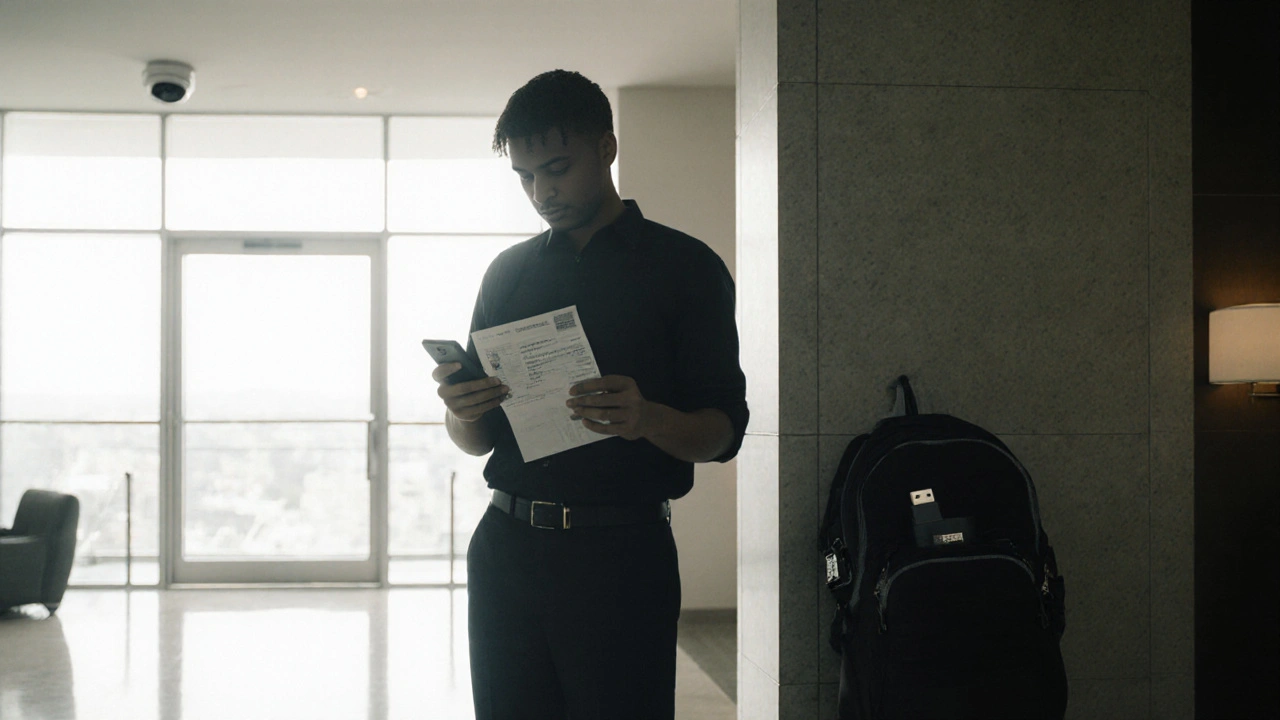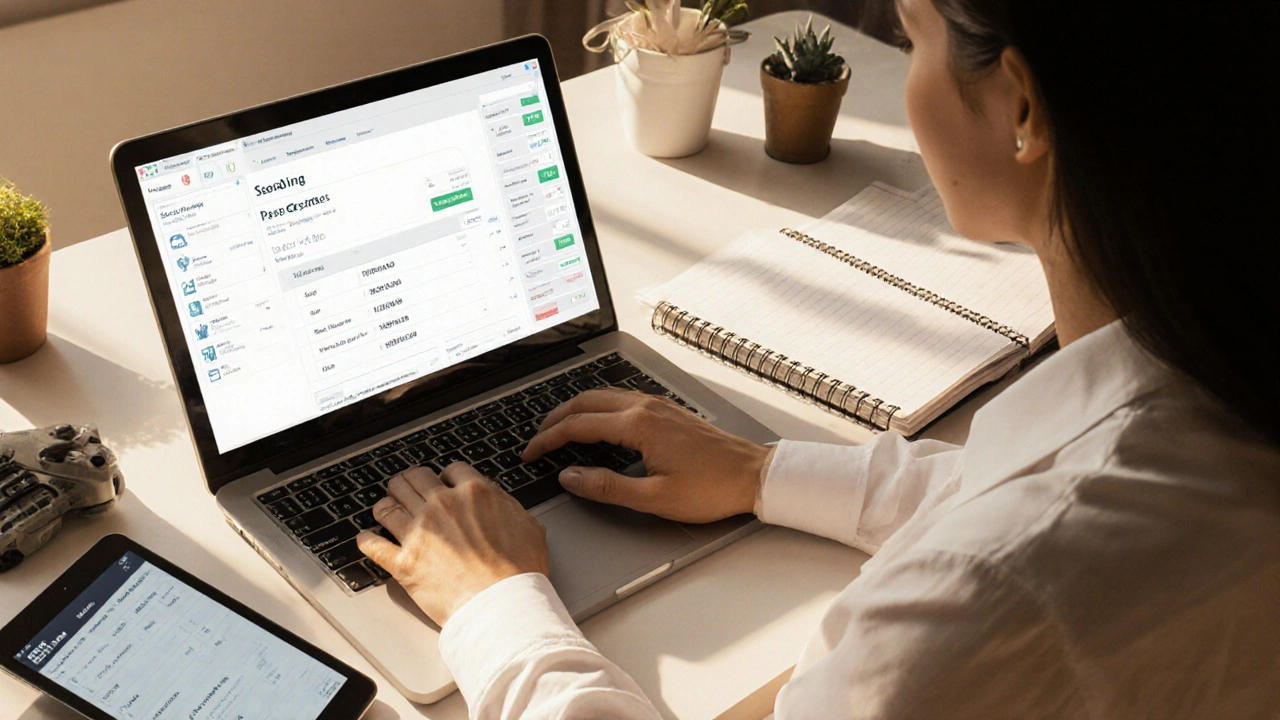Every month, sex workers lose thousands of dollars to scams, chargebacks, and frozen accounts. It’s not because they’re careless-it’s because the financial system was never built for them. Banks shut down accounts without warning. Payment processors label legitimate income as "high risk." And when a client pays with a stolen card, the money disappears-and you’re left holding the bag.
This isn’t theoretical. In 2024, a survey of 1,200 independent sex workers across Australia, Canada, and the UK found that 68% had experienced at least one payment-related fraud attempt in the past year. One in five lost more than $1,000. Many didn’t report it because they feared being flagged by banks or police.
You don’t need to be a tech expert to protect your income. You just need a few smart habits and the right tools.
Use Dedicated Payment Tools Designed for Independent Workers
Don’t use your personal bank account for work. It’s the fastest way to get flagged. Banks use automated systems that look for patterns-multiple small deposits, payments from unfamiliar names, frequent transfers. These are normal for sex workers. To a bank algorithm, they look like money laundering.
Instead, use platforms built for independent contractors. Services like Stripe, PayPal (with caution), and Wise let you create separate business profiles. You can label income as "consulting," "digital services," or "entertainment"-terms that don’t trigger red flags. Set up a dedicated email and bank account just for work. Keep it clean. No mixing personal and professional transactions.
Some sex workers use cryptocurrency wallets like Bitcoin or Monero for direct client payments. Monero is especially useful because it hides transaction details. But crypto isn’t for everyone. If you’re not comfortable with private keys or wallet recovery, stick with regulated platforms. You can always accept crypto through a service like BitPay that converts it to fiat instantly.
Verify Clients Before Accepting Payment
Not every client is honest. Some use stolen credit cards. Others use fake PayPal accounts. Some even send you a payment, then file a chargeback claiming they never agreed to the service.
Here’s how to reduce that risk:
- Ask for a photo ID with a matching name on the payment method. Don’t accept payments from accounts with names like "JohnDoe123" or "PayPalUser2025." Real people use their full names.
- Use platforms that show payment confirmation before you start. If you’re using Stripe or PayPal, wait until the payment clears in your dashboard-not just when the client says "I sent it."
- For cash payments, meet in public places with security cameras. Avoid isolated locations. If you’re meeting at a hotel, ask for the guest’s reservation name to match the ID.
- Keep a log: date, time, payment method, amount, client name (if given), and any notes. This isn’t just for safety-it’s your paper trail if something goes wrong.
One worker in Melbourne started using a simple Google Sheet to track every client. When someone later disputed a payment, she had the record. The bank asked for proof. She provided it. The dispute was denied.
Avoid Chargebacks Like Your Life Depends on It (Because It Might)
Chargebacks are the silent killer of sex worker income. A client pays you $300 via PayPal. Two weeks later, they claim they didn’t authorize it. PayPal freezes your account. You lose the money. And if this happens twice, your account gets permanently banned.
Here’s how to prevent it:
- Always get written confirmation before starting. A simple text like, "Confirmed: $300 for 1 hour, starting at 7 PM on Oct 15," is enough. Save it.
- Use platforms that allow you to add notes to payments. In Stripe, you can write "Independent service agreement: in-person session, agreed terms." This becomes part of the transaction record.
- Never accept payments from someone who refuses to communicate in writing. If they say, "Just trust me," walk away.
- If you’re using PayPal, enable "Seller Protection." It won’t stop all chargebacks, but it gives you a fighting chance if the client is lying.
One worker in Sydney lost $1,800 to a chargeback after accepting a PayPal payment from someone who claimed they were "just testing the system." She had no written record. PayPal sided with the client. She had to start over.

Use Two-Factor Authentication and Strong Passwords
Your financial accounts are your livelihood. If someone hacks your PayPal or bank login, they can drain it in minutes.
Use a password manager like Bitwarden or 1Password. Generate long, random passwords for each account. Never reuse passwords-not even for "just one site."
Turn on two-factor authentication (2FA) everywhere. Use an authenticator app like Authy or Google Authenticator. Avoid SMS-based 2FA if you can. SIM-swapping attacks are real. A hacker can take over your phone number and reset passwords.
Set up login alerts. Most banks and payment apps let you get a text or email every time someone logs in. If you see a login you didn’t make, freeze your account immediately.
Backup Your Financial Records
What happens if your phone dies? Your laptop gets stolen? Your cloud account gets hacked?
Keep backups of all payment records, client communications, and receipts. Don’t rely on your phone’s notes app. Use encrypted cloud storage like ProtonDrive or Tresorit. Or save copies on a USB drive stored in a safe place-like a friend’s house or a safety deposit box.
One worker in Perth kept her records on a hidden partition of her laptop. When her device was stolen, she lost everything. She had no proof of income. She couldn’t prove she wasn’t involved in illegal activity. It took six months to clear her name.
Know Your Rights If Your Account Gets Frozen
Even if you do everything right, your account might still get locked. Banks don’t care if you’re合法. They care about risk.
If your account is frozen:
- Don’t panic. Don’t delete messages or change your story.
- Call the bank or payment provider. Ask for the reason in writing.
- Provide documentation: your client logs, payment confirmations, service agreements.
- Ask for a supervisor. Frontline staff often don’t understand independent income models.
- Reach out to organizations like SWOP (Sex Workers Outreach Project) or Red Umbrella Fund. They have legal resources for financial disputes.
Many workers are told they’re breaking the law. They’re not. If you’re providing legal services in a decriminalized or regulated environment, your income is legitimate. You just need to prove it.
What to Do If You’ve Already Been Scammed
If you’ve lost money to fraud:
- Report it to the payment platform immediately. Even if they say "no refund," they might block the user.
- File a report with your local police. Many don’t take these cases seriously, but having a record helps if it happens again.
- Warn others. Use trusted networks like private forums or encrypted groups to share the client’s name or payment details. Don’t post publicly-this protects your privacy.
- Don’t blame yourself. Scammers are good. They’re trained. You didn’t fail. The system failed you.
One worker in Melbourne lost $2,500 to a fake booking site. She didn’t tell anyone at first. Then she found five others who’d been tricked by the same person. Together, they reported the site to Google and PayPal. It got taken down.
Final Tip: Build a Safety Network
Financial safety isn’t just about tools. It’s about people.
Find other sex workers you trust. Share tips. Warn each other about bad clients. Create a group chat where you can check in before accepting a payment. If someone says, "I’m sending you $500 via Venmo," and you’re unsure-ask the group. Someone’s probably seen that name before.
When you’re not alone, you’re not vulnerable.
